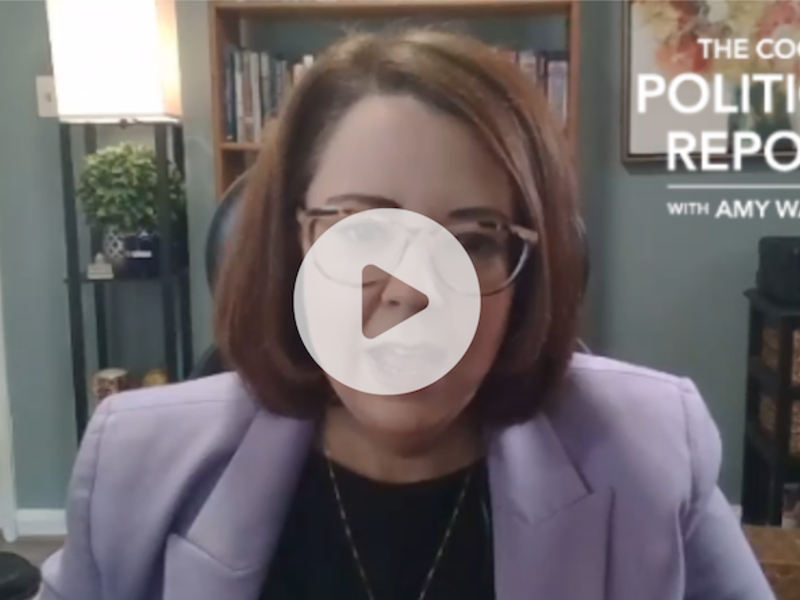
With only a few exceptions, polling has delivered bad news for President Trump of late. His job-approval rating is 44 percent in RealClearPolitics.com’s average of major national polls. That includes 43 percent in CNN and PBS/NPR/Marist University polls released this past week, and 40 percent in a Gallup Poll covering the second half of May.
His numbers have pretty consistently lagged behind each of the eight elected presidents in the postwar era who sought reelection. At this juncture of his presidency, his numbers top where President Carter found himself, but they trail Eisenhower, Nixon, Reagan, George H.W. Bush, Clinton, George W. Bush, and Obama at this stage.
He’s behind former Vice President Joe Biden by 11 points in a May 11-14 Fox News Poll of 1,008 registered voters, 49 to 38 percent. In fact, Trump runs behind at least Biden in just about every national poll and those in most swing states, notably Michigan, Pennsylvania, and Wisconsin. In the aforementioned PBS/NPR/Marist survey, 51 percent said they would definitely vote against Trump, while just 36 percent would definitely vote for him.
There is a fatalistic attitude among many experienced Republican elected officials and strategists about the president. At 74 years of age, his behavior or style is not likely to change. He does not seem especially open to advice from people who have been around politics and won far more elections than he has. This cake is baked.
The 2020 Trump campaign is sure to be vastly more sophisticated and better financed than the dumpster-fire organization in his 2016 effort. Yet if Trump is reelected, it is going to be because Democrats screwed up.
A lot of my journalist friends would strongly disagree, but Trump doesn’t get much slack from the media. When his backers say he is not treated fairly, they are not entirely wrong. But to think that is the sole reason for his historically low poll numbers is an exercise in denial. Often, when Trump is right or does something well, the way in which he does it keeps him from getting any credit outside his base of 35 percent or so. They love what he does and how he does it, but this style grates on or outright offends many outside his base. In so many ways, he is his own worst enemy.
Given that, how can we measure the “Trump Penalty"? In other words, what is the cost of his behavior and style, above what would be the case of a more conventional, mostly conservative Republican president, who similarly pushed for low taxes, less regulation, and conservative judges in a booming economy? Harvard government professor Stephen Ansolabehere, an expert on public opinion and elections, has looked at this phenomenon and estimates that Trump’s approval generally runs about 10 percentage points below that of his policies—not every policy, but many.
I proposed this question to six veteran Republican pollsters, pros who sift through the results of thousands of interviews with voters every year and sit through endless numbers of focus groups with voters. Several chose only to speak without attribution.
Republican pollster Bill McInturff, founding partner of Public Opinion Strategies, applies the “Wirthlin standard”—that presidents usually run about 14 to 17 points above the “right direction” number on the right direction/wrong track poll question. By that measure, Trump should be in the low 50s in job approval.
Another leading Republican pollster who asked not to be identified suggested that, given where the economy has been, Trump’s approval rating ought to be about 55 percent. Another offered that “style points” are setting Trump back “3-5 points on his job approval, but importantly add to the negative intensity of his detractors.” Such negative intensity, the pollster continued, is “driving the generic ballot away from him, so that this far out from the election, voters are willing to give their support to the generic D, sight unseen, simply due to their antipathy toward the president.
"That could very well change once a candidate emerges from the Democrat free-for-all,” the pollster added.
Jan van Lohuizen, who served as George W. Bush’s campaign pollster, argued, “I think it is hard to separate style from issues. For instance, his behavior on undocumented workers and tariffs is really both style and substance.”
To be clear, there are plenty of Republicans and conservatives who, while not caring for Trump’s approach, have stayed on board due to the economy and judges. But they won't be nearly enough to deliver him another four years.
This story was originally published on nationaljournal.com on June 11, 2019










Subscribe Today
Our subscribers have first access to individual race pages for each House, Senate and Governors race, which will include race ratings (each race is rated on a seven-point scale) and a narrative analysis pertaining to that race.